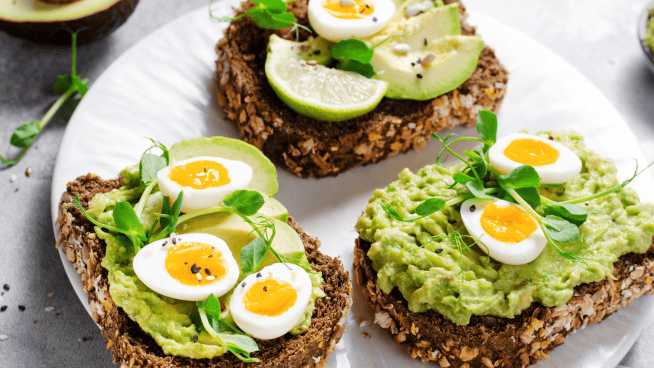Why Athletes Need Zinc to Optimize Performance
Zinc is essential for various bodily functions, making it crucial for athletes aiming to optimize their performance. While it’s well-known for its role in immune function, zinc is equally important for athletic performance due to its influence on muscle recovery, energy production, and overall physical endurance.
1. Muscle Recovery and Growth
The most critical aspect of athletic performance is the ability to recover quickly after intense training sessions. Zinc plays a vital role in protein synthesis, a process essential for muscle repair and growth. After strenuous exercise, muscles undergo micro-tears that need to be repaired to become stronger. Zinc supports this repair process, ensuring muscles recover efficiently, which is crucial for consistent training and performance improvement.
Additionally, zinc helps regulate hormone levels, particularly testosterone, essential for muscle growth. Adequate zinc levels ensure the body maintains optimal testosterone levels, promoting muscle development and preventing fatigue.
2. Energy Production
Zinc is a critical component of several enzymes involved in energy metabolism. During exercise, the body must have a steady supply of energy to sustain physical activity. Zinc contributes to the production of adenosine triphosphate (ATP), the primary energy molecule used by cells. ATP production can be compromised without sufficient zinc, leading to decreased energy levels and endurance.
Moreover, zinc is involved in metabolizing carbohydrates, fats, and proteins. This ensures that the body efficiently converts these macronutrients into usable energy, supporting sustained performance during prolonged exercise sessions.
3. Immune Function and Injury Prevention
Due to the physical stress of intense training, athletes are susceptible to infections and illnesses. Zinc is renowned for its immune-boosting properties, helping to protect athletes from common illnesses that could disrupt their training schedules. A strong immune system allows athletes to maintain consistent training routines, reducing the likelihood of downtime due to sickness.
Zinc is also excellent for wound healing, which is crucial for athletes who may experience minor injuries, cuts, or abrasions during training and competition. By supporting faster wound healing, zinc helps prevent infections and promotes quicker recovery from minor injuries, allowing athletes to return to training sooner.
4. Antioxidant Protection
Intense physical activity can increase the production of free radicals in the body, leading to oxidative stress. Oxidative stress can cause cellular damage, impair performance, and increase the risk of injury. Zinc works as an antioxidant, neutralizing free radicals and protecting the body from oxidative damage.
By reducing oxidative stress, zinc helps preserve muscle function and prevent the decline in performance associated with prolonged exposure to free radicals. This protection is significant for endurance athletes exposed to higher levels of oxidative stress due to the nature of their training.
5. Enhanced Cognitive Function
Athletes need physical strength and mental acuity to perform at their best. Zinc has a role in neurotransmitter function and cognitive processes, contributing to improved focus, concentration, and decision-making skills. Maintaining optimal cognitive function is crucial during competition, where split-second decisions are essential.
Zinc deficiency is linked to impaired cognitive function, negatively impacting an athlete’s ability to strategize, react quickly, and focus during intense situations. Ensuring adequate zinc intake supports mental sharpness, which is as important as physical prowess in achieving peak performance.
6. Dietary Sources and Supplementation
Athletes can obtain zinc through a balanced diet, with foods like red meat, poultry, seafood (especially oysters), nuts, seeds, and whole grains being excellent sources. However, intense training can increase zinc loss through sweat, making it challenging to meet the body’s zinc needs through diet alone.
In such cases, athletes may benefit from zinc supplementation. It’s essential to consult with your doctor or a sports nutritionist for the appropriate dosage. Excessive zinc intake can have adverse reactions, effects, and imbalances with other essential minerals, like copper.
The recommended daily zinc intake for athletes varies based on age, sex, and the intensity of physical activity. Here’s a general guideline:
Recommended Zinc Intake:
- Adult Men: 11 mg per day
- Adult Women: 8 mg per day
Athletes’ Zinc Needs:
Athletes who do intense training or play endurance sports may have higher zinc requirements due to increased losses through sweat and a greater demand for muscle repair and recovery. It’s generally recommended that:
- Male Athletes: May need up to 15-20 mg per day
- Female Athletes: May need up to 12-15 mg per day
Factors That May Increase Zinc Needs:
- High Sweat Loss: Athletes who sweat heavily, such as those participating in endurance sports, can lose a significant amount of zinc through sweat.
- High-Intensity Training: Intense physical activity increases zinc turnover due to greater muscle repair and immune support demand.
- Dietary Restrictions: Vegetarian or vegan athletes might require more zinc due to the lower bioavailability of zinc in plant-based sources.
Supplementation:
If dietary intake does not meet the increased requirements, supplementation may be considered. However, it’s important not to exceed a level of 40 mg per day for adults. Excessive zinc consumption can interfere with the body’s absorption of minerals like copper and iron and cause adverse effects.
Best Time to Take Zinc
The timing of zinc intake can affect its absorption and effectiveness. Here are some guidelines on when athletes should take zinc to maximize its benefits:
- With Meals:
- Why: Taking zinc with food can help enhance absorption and reduce potential stomach irritation, which some people may experience when taking zinc on an empty stomach.
- Ideal Foods: Foods high in protein, like meat or fish, can enhance zinc absorption, while high-fiber foods and those rich in phytates (like whole grains and legumes) can inhibit absorption.
- Avoid Taking with High-Dose Calcium or Iron Supplements:
- Why: High doses of calcium and iron can compete with zinc for absorption. If you are taking other mineral supplements, it’s best to space them out by a few hours.
- Recommendation: If you need to take calcium or iron supplements, take zinc at a different time of day, such as calcium in the morning and zinc in the evening.
- After Exercise:
- Why: Post-exercise is an excellent time to take zinc as it supports muscle repair and recovery. Taking it with a post-workout meal or snack ensures it’s paired with protein, aiding absorption.
- Consistent Timing:
- Why: Consistency helps maintain stable zinc levels in the body. Choose a time of day (morning, afternoon, or evening) and try to take your zinc supplement at the same time daily for best results.
Avoid Taking Zinc on an Empty Stomach if Sensitive:
- Some people can experience nausea or stomach upset when taking zinc without food. To prevent this, it’s generally advised to take it with a meal unless you’ve taken it before and found you tolerate it well on an empty stomach.
Key Points to Remember:
- Morning or Evening: Zinc can be taken at any time of day, but consistency is key.
- Avoid High-Fiber Foods Alone: Foods like whole grains or beans should not be the primary food source with which you take zinc, as they can inhibit absorption.
- Consult with a Professional: Individual needs can vary, so it’s always a good idea to consult your doctor for advice based on your training schedule and dietary habits.
Zinc is a powerhouse mineral that supports various aspects of athletic performance, from muscle recovery and energy production to immune function and cognitive abilities. For athletes aiming to optimize their performance, maintaining adequate zinc levels is essential.
Whether through diet or supplementation, ensuring sufficient zinc intake can provide the edge needed to excel in training and competition. By prioritizing this essential nutrient, athletes can enhance their physical and mental performance, ultimately reaching new heights in their athletic endeavors.
Check out my book Eat to Win for weeks of nutritional plans for breakfast, lunch and dinner. And Blended Bliss if you love smoothies!
Check out my INSTANT STRENGTH book for total strength, speed, and power programs.
To maximize stability, mobility, and flexibility, check out my book, THE BALANCED BODY.
To see great exercises, methods, and techniques videos, subscribe to my YouTube channel, BALANCED BODY.
RECOMMENDED FOR YOU
Why Athletes Need Zinc to Optimize Performance
Zinc is essential for various bodily functions, making it crucial for athletes aiming to optimize their performance. While it’s well-known for its role in immune function, zinc is equally important for athletic performance due to its influence on muscle recovery, energy production, and overall physical endurance.
1. Muscle Recovery and Growth
The most critical aspect of athletic performance is the ability to recover quickly after intense training sessions. Zinc plays a vital role in protein synthesis, a process essential for muscle repair and growth. After strenuous exercise, muscles undergo micro-tears that need to be repaired to become stronger. Zinc supports this repair process, ensuring muscles recover efficiently, which is crucial for consistent training and performance improvement.
Additionally, zinc helps regulate hormone levels, particularly testosterone, essential for muscle growth. Adequate zinc levels ensure the body maintains optimal testosterone levels, promoting muscle development and preventing fatigue.
2. Energy Production
Zinc is a critical component of several enzymes involved in energy metabolism. During exercise, the body must have a steady supply of energy to sustain physical activity. Zinc contributes to the production of adenosine triphosphate (ATP), the primary energy molecule used by cells. ATP production can be compromised without sufficient zinc, leading to decreased energy levels and endurance.
Moreover, zinc is involved in metabolizing carbohydrates, fats, and proteins. This ensures that the body efficiently converts these macronutrients into usable energy, supporting sustained performance during prolonged exercise sessions.
3. Immune Function and Injury Prevention
Due to the physical stress of intense training, athletes are susceptible to infections and illnesses. Zinc is renowned for its immune-boosting properties, helping to protect athletes from common illnesses that could disrupt their training schedules. A strong immune system allows athletes to maintain consistent training routines, reducing the likelihood of downtime due to sickness.
Zinc is also excellent for wound healing, which is crucial for athletes who may experience minor injuries, cuts, or abrasions during training and competition. By supporting faster wound healing, zinc helps prevent infections and promotes quicker recovery from minor injuries, allowing athletes to return to training sooner.
4. Antioxidant Protection
Intense physical activity can increase the production of free radicals in the body, leading to oxidative stress. Oxidative stress can cause cellular damage, impair performance, and increase the risk of injury. Zinc works as an antioxidant, neutralizing free radicals and protecting the body from oxidative damage.
By reducing oxidative stress, zinc helps preserve muscle function and prevent the decline in performance associated with prolonged exposure to free radicals. This protection is significant for endurance athletes exposed to higher levels of oxidative stress due to the nature of their training.
5. Enhanced Cognitive Function
Athletes need physical strength and mental acuity to perform at their best. Zinc has a role in neurotransmitter function and cognitive processes, contributing to improved focus, concentration, and decision-making skills. Maintaining optimal cognitive function is crucial during competition, where split-second decisions are essential.
Zinc deficiency is linked to impaired cognitive function, negatively impacting an athlete’s ability to strategize, react quickly, and focus during intense situations. Ensuring adequate zinc intake supports mental sharpness, which is as important as physical prowess in achieving peak performance.
6. Dietary Sources and Supplementation
Athletes can obtain zinc through a balanced diet, with foods like red meat, poultry, seafood (especially oysters), nuts, seeds, and whole grains being excellent sources. However, intense training can increase zinc loss through sweat, making it challenging to meet the body’s zinc needs through diet alone.
In such cases, athletes may benefit from zinc supplementation. It’s essential to consult with your doctor or a sports nutritionist for the appropriate dosage. Excessive zinc intake can have adverse reactions, effects, and imbalances with other essential minerals, like copper.
The recommended daily zinc intake for athletes varies based on age, sex, and the intensity of physical activity. Here’s a general guideline:
Recommended Zinc Intake:
- Adult Men: 11 mg per day
- Adult Women: 8 mg per day
Athletes’ Zinc Needs:
Athletes who do intense training or play endurance sports may have higher zinc requirements due to increased losses through sweat and a greater demand for muscle repair and recovery. It’s generally recommended that:
- Male Athletes: May need up to 15-20 mg per day
- Female Athletes: May need up to 12-15 mg per day
Factors That May Increase Zinc Needs:
- High Sweat Loss: Athletes who sweat heavily, such as those participating in endurance sports, can lose a significant amount of zinc through sweat.
- High-Intensity Training: Intense physical activity increases zinc turnover due to greater muscle repair and immune support demand.
- Dietary Restrictions: Vegetarian or vegan athletes might require more zinc due to the lower bioavailability of zinc in plant-based sources.
Supplementation:
If dietary intake does not meet the increased requirements, supplementation may be considered. However, it’s important not to exceed a level of 40 mg per day for adults. Excessive zinc consumption can interfere with the body’s absorption of minerals like copper and iron and cause adverse effects.
Best Time to Take Zinc
The timing of zinc intake can affect its absorption and effectiveness. Here are some guidelines on when athletes should take zinc to maximize its benefits:
- With Meals:
- Why: Taking zinc with food can help enhance absorption and reduce potential stomach irritation, which some people may experience when taking zinc on an empty stomach.
- Ideal Foods: Foods high in protein, like meat or fish, can enhance zinc absorption, while high-fiber foods and those rich in phytates (like whole grains and legumes) can inhibit absorption.
- Avoid Taking with High-Dose Calcium or Iron Supplements:
- Why: High doses of calcium and iron can compete with zinc for absorption. If you are taking other mineral supplements, it’s best to space them out by a few hours.
- Recommendation: If you need to take calcium or iron supplements, take zinc at a different time of day, such as calcium in the morning and zinc in the evening.
- After Exercise:
- Why: Post-exercise is an excellent time to take zinc as it supports muscle repair and recovery. Taking it with a post-workout meal or snack ensures it’s paired with protein, aiding absorption.
- Consistent Timing:
- Why: Consistency helps maintain stable zinc levels in the body. Choose a time of day (morning, afternoon, or evening) and try to take your zinc supplement at the same time daily for best results.
Avoid Taking Zinc on an Empty Stomach if Sensitive:
- Some people can experience nausea or stomach upset when taking zinc without food. To prevent this, it’s generally advised to take it with a meal unless you’ve taken it before and found you tolerate it well on an empty stomach.
Key Points to Remember:
- Morning or Evening: Zinc can be taken at any time of day, but consistency is key.
- Avoid High-Fiber Foods Alone: Foods like whole grains or beans should not be the primary food source with which you take zinc, as they can inhibit absorption.
- Consult with a Professional: Individual needs can vary, so it’s always a good idea to consult your doctor for advice based on your training schedule and dietary habits.
Zinc is a powerhouse mineral that supports various aspects of athletic performance, from muscle recovery and energy production to immune function and cognitive abilities. For athletes aiming to optimize their performance, maintaining adequate zinc levels is essential.
Whether through diet or supplementation, ensuring sufficient zinc intake can provide the edge needed to excel in training and competition. By prioritizing this essential nutrient, athletes can enhance their physical and mental performance, ultimately reaching new heights in their athletic endeavors.
Check out my book Eat to Win for weeks of nutritional plans for breakfast, lunch and dinner. And Blended Bliss if you love smoothies!
Check out my INSTANT STRENGTH book for total strength, speed, and power programs.
To maximize stability, mobility, and flexibility, check out my book, THE BALANCED BODY.
To see great exercises, methods, and techniques videos, subscribe to my YouTube channel, BALANCED BODY.










